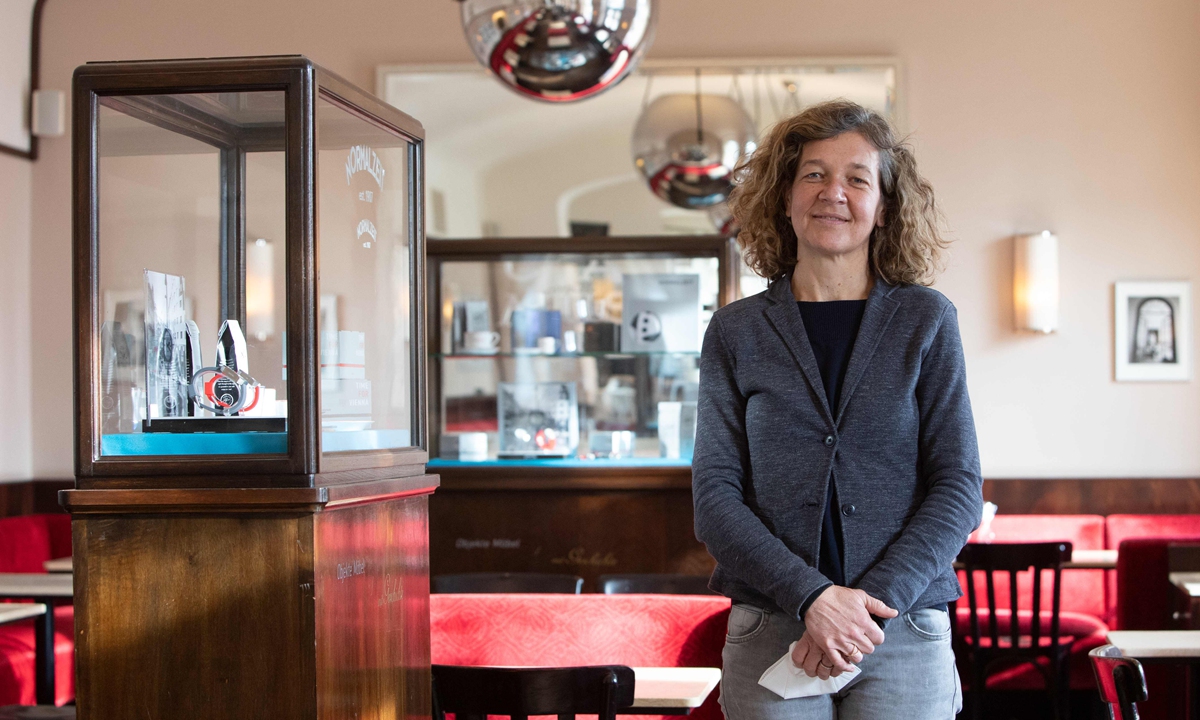Gerda Holzinger-Burgstaller is out to shake up the banking sector: In a world still dominated by men in dark suits, the Austrian wants to break the region's glass ceiling once and for all.

The 42-year-old is still something of a rarity. Only 12 percent of financial enterprises in the central European state are headed by women.
"I can't count the number of times I've found myself surrounded by men in a meeting," Holzinger-Burgstaller told AFP at the headquarters of the 200-year-old institution.
Among her goals is "to ensure that a woman never finds herself alone in the meeting room again," she said.
After a stint at the Austrian Financial Markets Authority, she rose rapidly through the ranks once she joined Erste Bank - but had to battle sexism at every step.
The first few questions she gets in public meetings, she said, "are always specifically related to the fact that I am a woman. Only then do I get questions concerning my strategy or my ambitions for the company."
"When a man becomes a boss, we don't ask him how he intends to reconcile his private and professional life," she said from her top-floor offices, overlooking the Belvedere Palace and the city center beyond.
It is not just historic buildings that form the backdrop to Holzinger-Burgstaller's work, but some outdated attitudes too. Many Austrians still expect young mothers to give up their professional aspirations and dedicate their lives to childcare.
While some perceive the option to take up to two years' maternity leave as a luxury, others say they need to defend their decision to return to work sooner.
When they do, it is often part-time. Roughly one in three women, however, aren't part of the workforce at all, according to official data.
That results in dramatic cuts in income and career prospects, as well as their state pensions not being worth as much further down the line.
In the "Women in Work" ranking of business consultancy PwC, which analyses data including gender pay gaps and compares full-time employment between men and women, Austria came 25th out of the 33 OECD countries - a significant deterioration from 2013, when it ranked 13th.
"We are lagging behind - I believe this is a particular issue in German-speaking countries," Holzinger-Burgstaller said.
"We must ask ourselves about the stereotypes that persist. Which division of roles does a society value? Do we pay attention to the way girls are directed in their education?" she asked.

Irmgard Querfeld, owner of the Cafe Museum, poses in the closed Cafe Museum in Vienna on February 1. Photo: VCG
On January 1, Holzinger-Burgstaller took over as head of Erste Bank and its 2,500 employees, combining the roles of CEO, CFO and COO.The 42-year-old is still something of a rarity. Only 12 percent of financial enterprises in the central European state are headed by women.
"I can't count the number of times I've found myself surrounded by men in a meeting," Holzinger-Burgstaller told AFP at the headquarters of the 200-year-old institution.
Among her goals is "to ensure that a woman never finds herself alone in the meeting room again," she said.
After a stint at the Austrian Financial Markets Authority, she rose rapidly through the ranks once she joined Erste Bank - but had to battle sexism at every step.
The first few questions she gets in public meetings, she said, "are always specifically related to the fact that I am a woman. Only then do I get questions concerning my strategy or my ambitions for the company."
"When a man becomes a boss, we don't ask him how he intends to reconcile his private and professional life," she said from her top-floor offices, overlooking the Belvedere Palace and the city center beyond.
It is not just historic buildings that form the backdrop to Holzinger-Burgstaller's work, but some outdated attitudes too. Many Austrians still expect young mothers to give up their professional aspirations and dedicate their lives to childcare.
While some perceive the option to take up to two years' maternity leave as a luxury, others say they need to defend their decision to return to work sooner.
When they do, it is often part-time. Roughly one in three women, however, aren't part of the workforce at all, according to official data.
That results in dramatic cuts in income and career prospects, as well as their state pensions not being worth as much further down the line.
In the "Women in Work" ranking of business consultancy PwC, which analyses data including gender pay gaps and compares full-time employment between men and women, Austria came 25th out of the 33 OECD countries - a significant deterioration from 2013, when it ranked 13th.
"We are lagging behind - I believe this is a particular issue in German-speaking countries," Holzinger-Burgstaller said.
"We must ask ourselves about the stereotypes that persist. Which division of roles does a society value? Do we pay attention to the way girls are directed in their education?" she asked.



